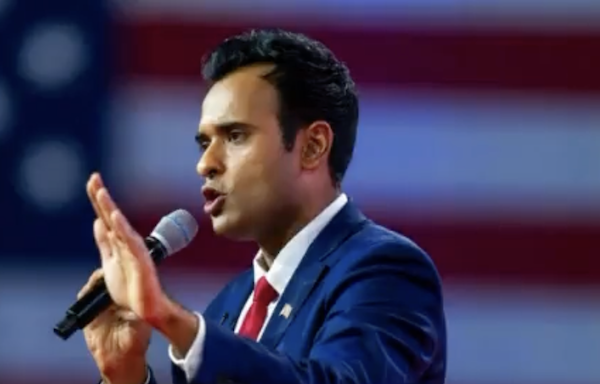Politics
GOP Presidential Candidate Suggests Raising Voting Age To 25

A Republican Presidential Candidate has suggested raising the voting age to 25, in order to restore the civic duty of voting and to ensure that the youth of the country are equipped with the necessary knowledge and experience to make informed decisions. Vivek Ramaswamy is proposing a constitutional amendment to achieve this goal.
Ramaswamy, a conservative thinker, entrepreneur, and 2024 candidate, has been a vocal proponent of this idea.
In his words, “We want to restore civic duty to in the mindset of the next generation of Americans and how we want to do it is to say that if you want to vote as an 18-year-old between the ages of 18 and 25, you need to either do your civic duty through service to the country that’s six months of service in either military service or in a first responder, including police, fire, or otherwise.”
Ramaswamy believes that the current voting age of 18 is arbitrary and does not necessarily guarantee that individuals are equipped with the necessary knowledge and experience to make informed decisions.
He continued, “Or else you have to pass the same civics test that an immigrant has to pass in order to become a naturalized citizen who can vote in this country. At age 25, that falls away. So in a nutshell, what we’re proposing is a constitutional amendment to raise the voting age to 25.”
Although Ramaswamy had been considering the idea of raising the voting age since he announced his presidential bid in February, he had initially been advised against it by his team. “Most of the team has not been for this,” according to a campaign adviser who spoke anonymously to Politico.
The proposal to raise the voting age to 25 has been put forward by some as a means to ensure that individuals are equipped with the necessary knowledge and experience to make informed decisions when casting their ballots. There are several potential benefits to raising the voting age that supporters of the proposal often cite.
At the time of the country’s founding, the right to vote was restricted to white male property owners. Over time, however, this restriction was gradually lifted. In 1868, the 14th Amendment to the Constitution was ratified, which extended citizenship and voting rights to all persons born or naturalized in the United States. This effectively abolished the property ownership requirement for voting.
The voting age remained at 21 for many years but began to be questioned during the Vietnam War. In 1970, Congress passed a law that extended the right to vote to 18-year-olds in all federal, state, and local elections. This was done in part as a response to the fact that young men were being drafted into the military to fight in Vietnam but were not allowed to vote.

